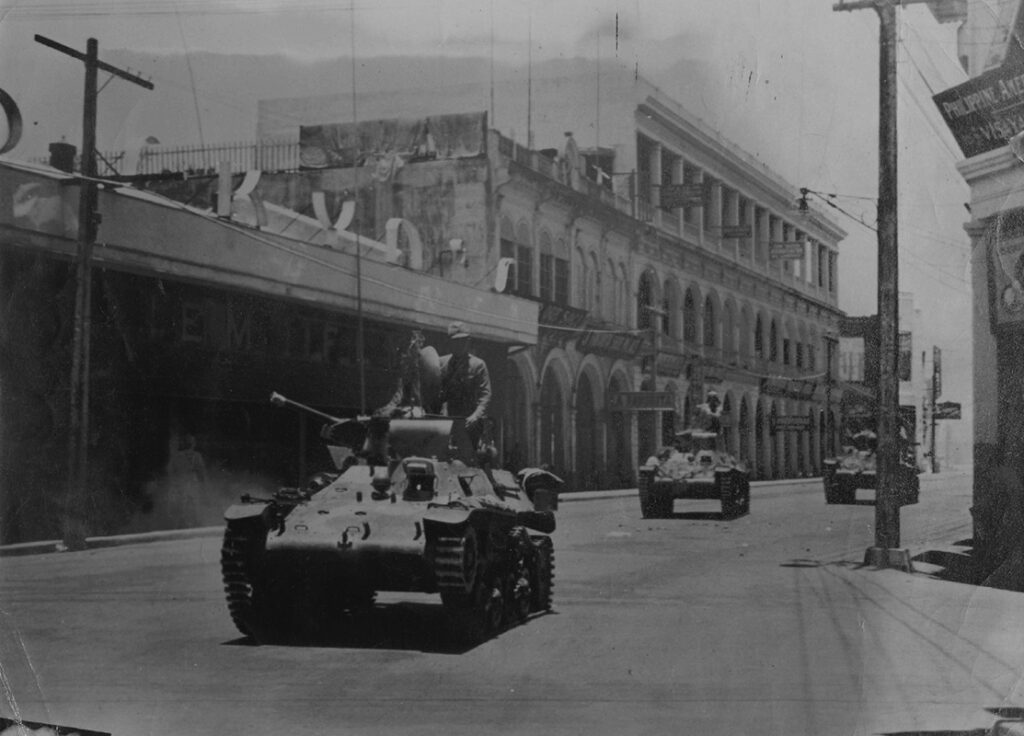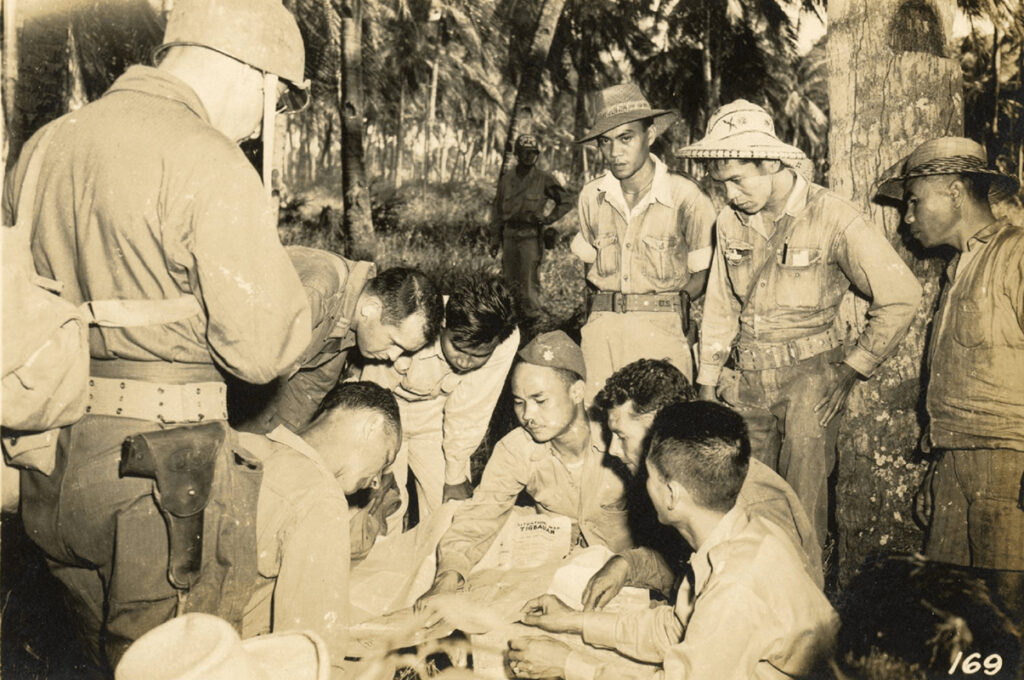Triumph in Tigbauan: The Liberation of Iloilo in 1945
Tigbauan Victory @80
by Prof. Ricardo T. Jose

Maayong hapon sa tanan.
Today is a very important day. To the Americans, it was G-Day, part of Victor I, the invasion of Panay island here at Tigbauan. The US 40th Infantry Division, part of the California National Guard, was given the task of carrying out the landing, as part of the US 8th Army. To the residents of Tigbauan, it was liberation day, Victory Day – for with the US landing, the town was freed from Japanese rule. And the road was opened to the liberation of Iloilo City and the rest of Panay Island.
But it was especially important because it was an unopposed landing – the guerrillas of the 6th Military District had secured the beach and and had driven away the Japanese garrison. Although a US Navy destroyer had begun a per-invasion bombardment, that was quickly halted when the sight of civilians and guerrillas lining the beach with flags indicated that there were no Japanese in the vicinity. It was a total victory.
The guerrillas had positioned themselves to contain the Japanese garrisons here, in Iloilo City, San Jose and Capiz. The rest of Panay was in guerrilla hands. American planes had bombed parts of Tigbauan and Iloilo in the drive up to the landing, and some structures such as the elementary school and the church were damaged. The Japanese had built bunkers, pillboxes and other field fortifications to defend Tigbauan and Iloilo. Guerrillas provided information on the Japanese positions, which were hit. The combined guerrilla-US actions forestalled what had happened to Manila, and convinced the Japanese that defending the city and towns was impracticable. Thus, Panay was saved the massive destruction that Manila experienced.
The coordination between the American forces and the guerrillas was unique – this was the first instance of such close cooperation. The 40th Division’s Intelligence chief was Im fact able to land here before daylight, several hours before the actual invasion, to meet with the local guerrilla leaders and confirm Japanese positions and the state of affairs on the ground. Signal panels indicated guerrilla lines so American planes would not bomb or strafe friendly lines.
The beaches of Tigbauan were specifically chosen for the landing for their accessibility, and proximity to the roads leading to Oton, Molo and Iloilo City. There were two beaches chosen, named Red and Blue beach, the first east of the Sibalon River and the other on the west. The first waves landed on Red Beach, heavier landing ships landed on Blue Beach, where the water was deeper.
The towns of Arevalo and Oton were also liberated on this day.
General Eichelberger himself, the commander of the US 8th Army, landed here on March 20, proceeding to Iloilo which was liberated by guerrillas and Americans together. The withdrawing Japanese forces were hit badly, although they managed to reach the mountains and hold out till the end of the war. They did not pose a major threat to the port areas, and airfields were quickly put into use to further secure not just Panay but the entire Western Visayas.
The end of the Japanese occupation meant the conclusion of three years of pain and suffering, uncertainty, of dislocated lives and losses. The rejoicing of that day 80 years ago today can not be duplicated by other past events. This day is rightfully one of commemorating that victory, one which the Filipinos – the people of Panay – should justifiably be proud of.
Congratulations to all who made the victory possible – and let us keep them in our memories, honor them always. Let us not forget those who did not live to see the dawn – they lie in Balantang. Their courage and sacrifice made Victory Day possible. Let us continue to celebrate this day and recognize the heroes who walked with us not too long ago. They should serve as our inspiration to meet the challenges of the present.

ARCHIVE: